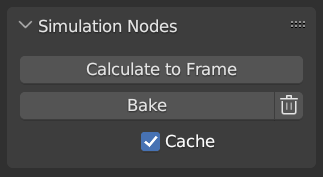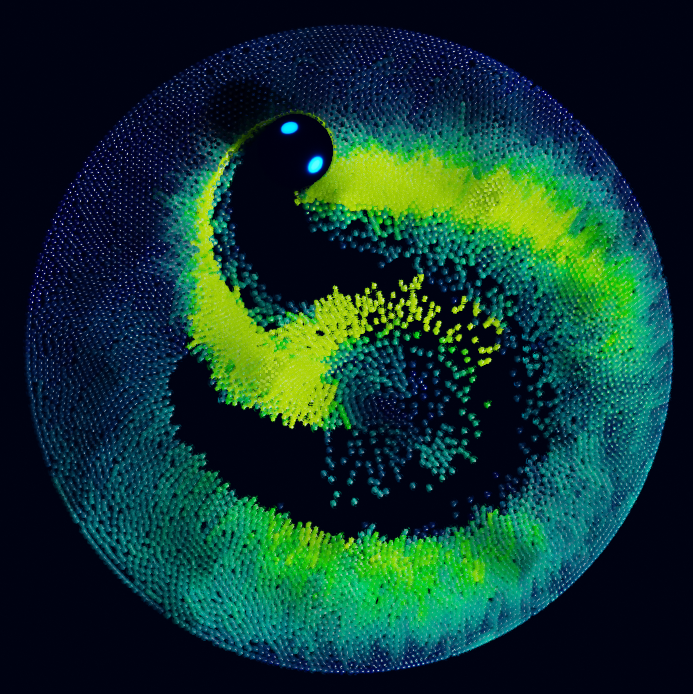Simulation Nodes
Through the use of Simulation Zones, Geometry Nodes can be used to create custom physic simulations through nodes. Simulation zones allow the result of one frame to influence the next one. That way even a set of simple rules can lead to complex results, with the passing of time. The most common type of them is physics simulation, with specific solvers for physical phenomena.
See also
Read more about Simulation Zones
Baking
The simulation is automatically cached during playback. The valid cache can be seen as a strong yellow line in the timeline editor. This allows for animators to quickly inspect all the previous frames of a simulation.

Cached frames in the Timeline.
When the result is ready to be sent to a render-farm, it can be baked to disk. This allows for the simulation to be rendered in a non-sequential order.

Simulation and Physics, Geometry Nodes user interface.
Note
Baking the simulation will bake all the simulations in all modifiers for the selected objects.
- Calculate to Frame
Calculate simulations in geometry nodes modifiers from the start to current frame.
- Bake
Bake simulations in geometry nodes modifiers. In order to bake the simulation, the blend-file must be saved to your computer. The location the file is saved determines where the baked data is also saved. The directory the baked data is saved to can be changed per modifier in the Internal Dependencies.
- Delete Cached Simulation
Delete cached/baked simulations in geometry nodes modifiers
- Cache
For the cases where the current frame is the only one relevant, users can opt-out of caching the results to save memory.
範例
Combined with the Index of Nearest, this can be used for a number of sphere-based simulations.

Index of Nearest sample file CC-BY Sean Christofferson.